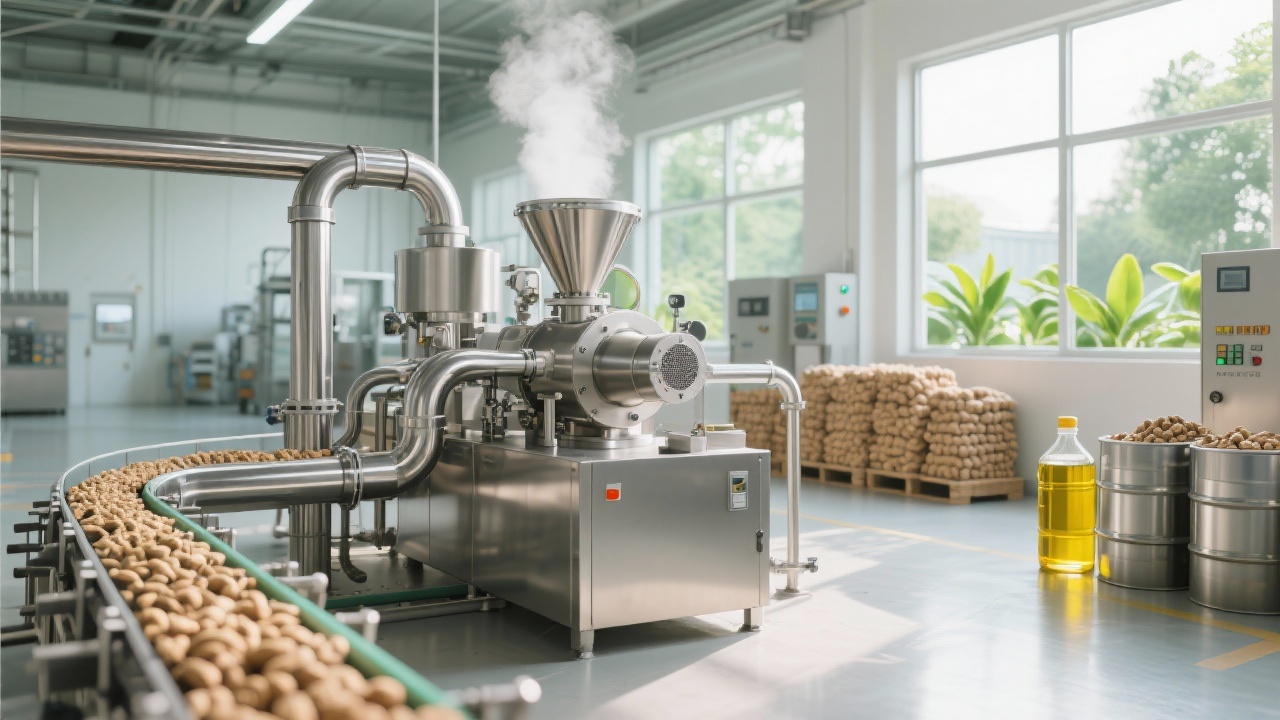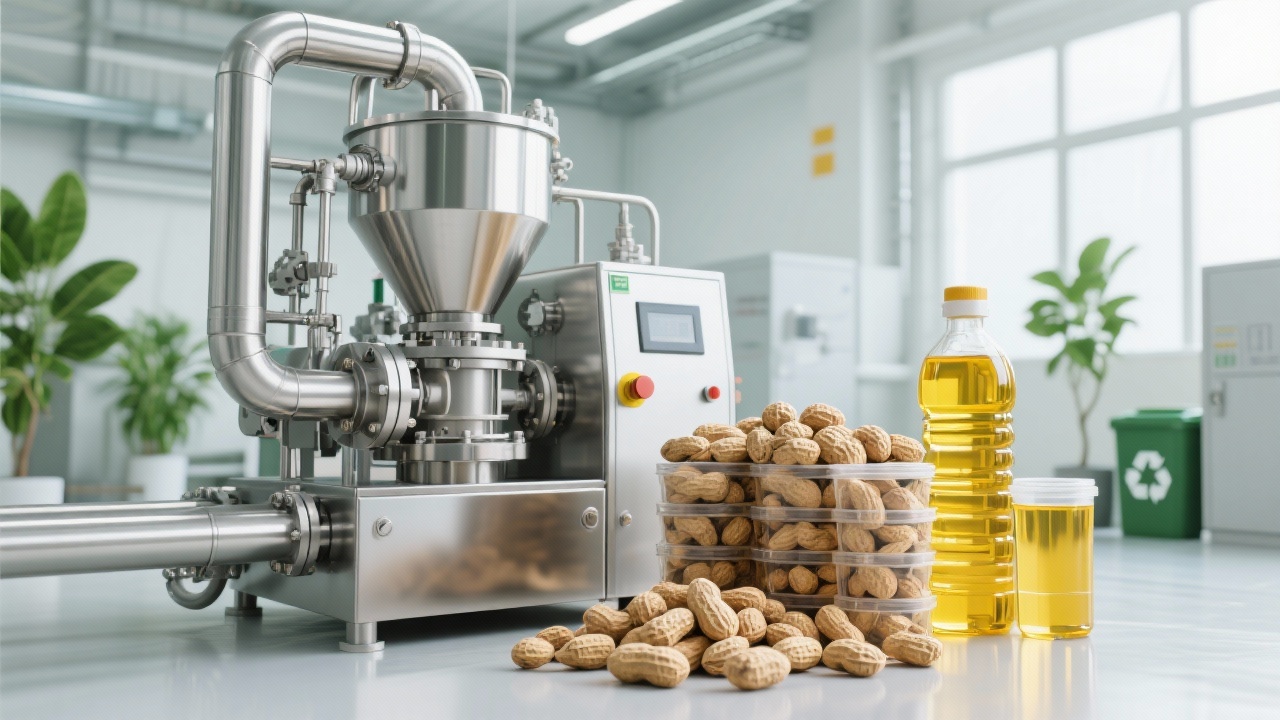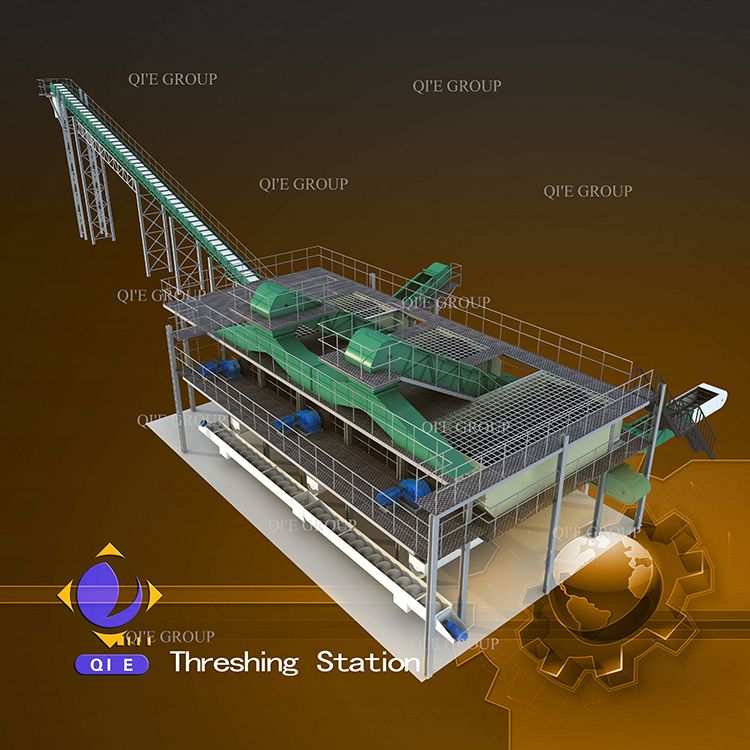
Modern sesame oil production is rapidly evolving to meet stringent environmental regulations and escalating market demand for high-purity organic products. The fully automated sesame oil production line from Penguin Group exemplifies cutting-edge innovation by integrating energy-saving technologies with a sustainable manufacturing philosophy. This comprehensive guide examines how this system enhances operational efficiency, ensures product safety, and reduces overhead costs through sustainable industrial design.
The Sesame oil production system is engineered with sequential modules: cleaning, drying, pressing, filtering, and automatic filling. This seamless automation minimizes manual intervention, reducing contamination risk and labor costs by up to 25%. High-precision sensors and PLC-controlled mechanisms optimize each phase, stabilizing throughput at an average capacity of 1000 kg/hour with energy consumption lowered by approximately 20% compared to traditional setups.
The fully enclosed production environment effectively isolates the sesame seeds and oil from external contaminants such as dust, microbes, and airborne impurities. This design plays a crucial role in preserving the oil’s natural aroma, nutrition, and shelf-life. Studies indicate that seal-tight environments reduce microbial contamination rates by over 40%, aligning with global food safety standards such as FDA and EFSA requirements.

Penguin Group’s sesame oil production line adheres to the ISO9001:2000 quality management system, safeguarding consistent product specifications and process reliability. Real-time quality checks, combined with traceability features, reduce defect rates by up to 15%, providing clients with confidence in both domestically and internationally compliant sesame oil. Continuous improvement protocols are embedded in the system’s software, allowing ongoing production optimization.
Sustainability is a key driver behind the production line’s design philosophy. Energy-efficient motors and heat recovery modules reduce electricity and fuel consumption, thus cutting operational costs by an estimated 18-22%. The integration of water recycling systems in the cleaning stage reduces water usage by roughly 30%. Such ecological initiatives not only comply with tightening environmental laws but also enhance corporate social responsibility appeal in global markets.
Catering to a diverse clientele, Penguin Group offers bespoke configurations tailored to enterprise size and output requirements — ranging from small-scale artisanal producers to large industrial processors. The technical support team provides end-to-end services including installation, training, and maintenance, ensuring clients realize maximum ROI within the first 12 months post-implementation.

Extensive field data demonstrates that businesses using this integrated automated line report a 30% increase in output efficiency and a 25% reduction in downtime. One notable case involved a mid-sized Asian oil mill that successfully decreased its carbon footprint by 15%, while increasing production volume by 20% within the first six months. These results underline the pivotal role of intelligent machinery in modern grain and oil processing.

For decision-makers aiming to future-proof their sesame oil production lines, embracing automation and green design principles is no longer optional but imperative. The Penguin Group’s technology portfolio supports scalable growth, food safety compliance, and operational excellence — all crucial for staying ahead in an increasingly eco-conscious global market.

